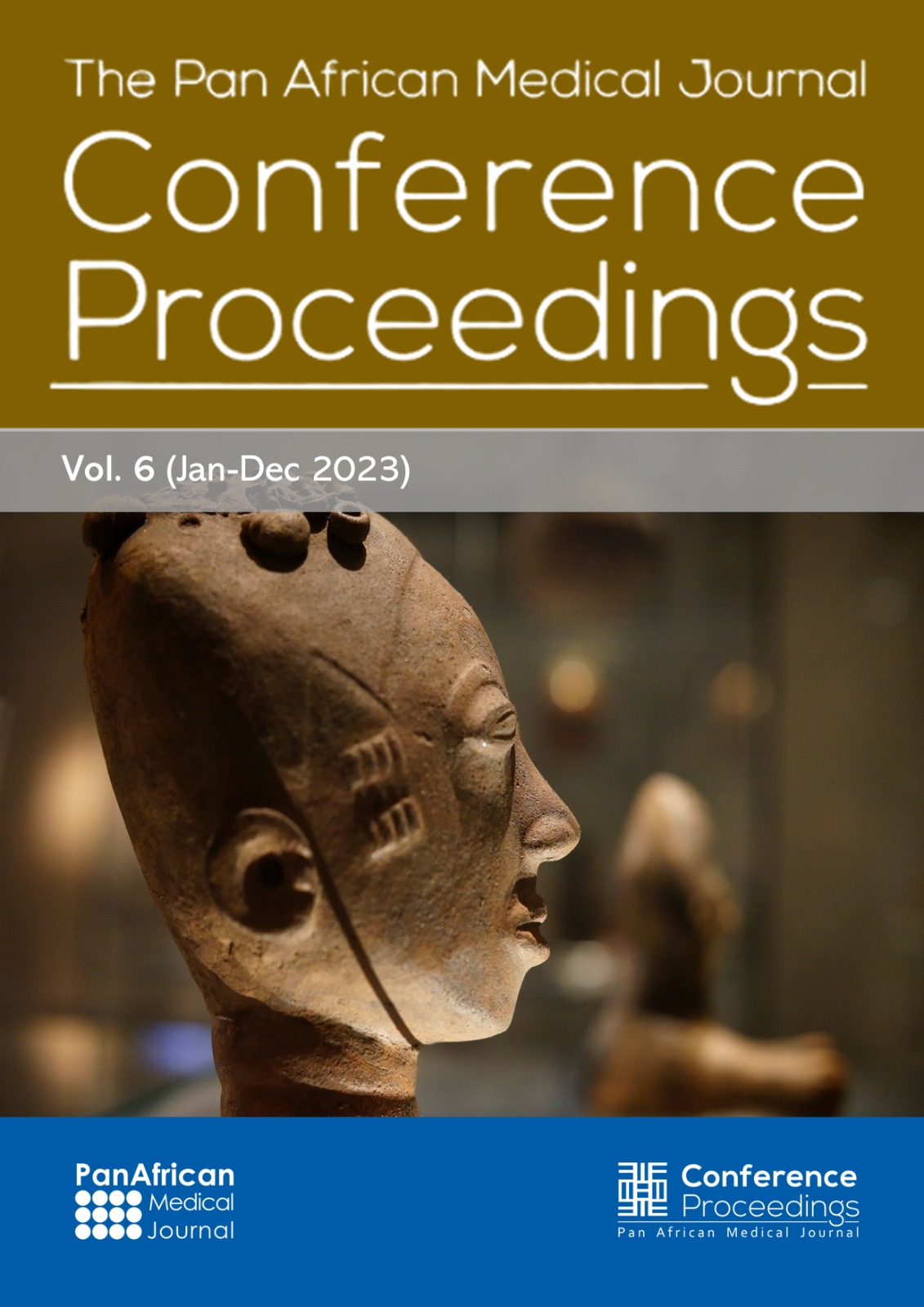Conference abstract
Evaluation of acute flaccid paralysis surveillance system in Ekiti State, Nigeria, 2016
Pan African Medical Journal - Conference Proceedings. 2018:8(30).28
Mar 2018.
doi: 10.11604/pamj-cp.2018.8.30.612
Archived on: 28 Mar 2018
Contact the corresponding author
Keywords: Acute flaccid paralysis surveillance, wild polio virus, surveillance system, Nigeria, Ekiti State
Opening ceremony
Evaluation of acute flaccid paralysis surveillance system in Ekiti State, Nigeria, 2016
Ibidolapo Ijarotimi1,&, Olufunmilola Ibikunle2, Adewole Adefisoye1, Patrick Nguku1
1Nigeria Field Epidemiology and Laboratory Training Programme, Abuja, Nigeria, 2Ekiti State Ministry of Health, Nigeria
&Corresponding author
Ibidolapo Ijarotimi, Nigeria Field Epidemiology and Laboratory Training Programme, Asokoro, Abuja, Nigeria
Introduction: poliomyelitis has been targeted for eradication and only three countries in the world, including Nigeria, still report cases. Highly sensitive surveillance for acute flaccid paralysis (AFP) is critical for the detection and eradication of Wild Polio virus (WPV). This study aimed to assess the capacity of the Ekiti State AFP surveillance system to promptly detect transmission of WPV.
Methods: the Disease Surveillance and Notification officers (DSNOs) for the 16 Local Government Areas of Ekiti state were interviewed using a key informant interview guide. Case investigation (CIF) and AFP Surveillance System Weekly Health Facility Report forms for 2016 were reviewed using the CDC updated guidelines for evaluation of surveillance systems and the World Health Organization’s (WHO) guideline for evaluation of AFP surveillance system.
Results: there were 326 reported cases of AFP but CIF were seen for only 248 (76.1%) cases. All stool samples were collected within 14 days of onset of paralysis, and 24 - 48 hours apart. All samples arrived at the WHO-accredited Polio laboratory in Ibadan within 72 hours of collection. Stool adequacy was 99.2%. Five (2.0%) samples were positive for Vaccine-derived Poliovirus. The Non-Polio Enterovirus isolation rate, a measure of the efficiency of the reverse cold chain was 8% (less than > 10% target). Non-Polio Acute Flaccid Paralysis rate was 20.8/100,000. There was no isolation of WPV. All 16 DSNOs found the case definition for AFP simple to understand and the reporting system acceptable. Lack of transport was a difficulty faced by 10 (66.7%) of them. The system was solely funded by the WHO.
Conclusion: Ekiti State AFP surveillance system in the year 2016 was sensitive, representative, acceptable and timely and the laboratory component performed well. However, the data quality was poor and the reverse cold chain was deficient. There is need to increase state and local governments’ financial commitment to the functioning of the system.








